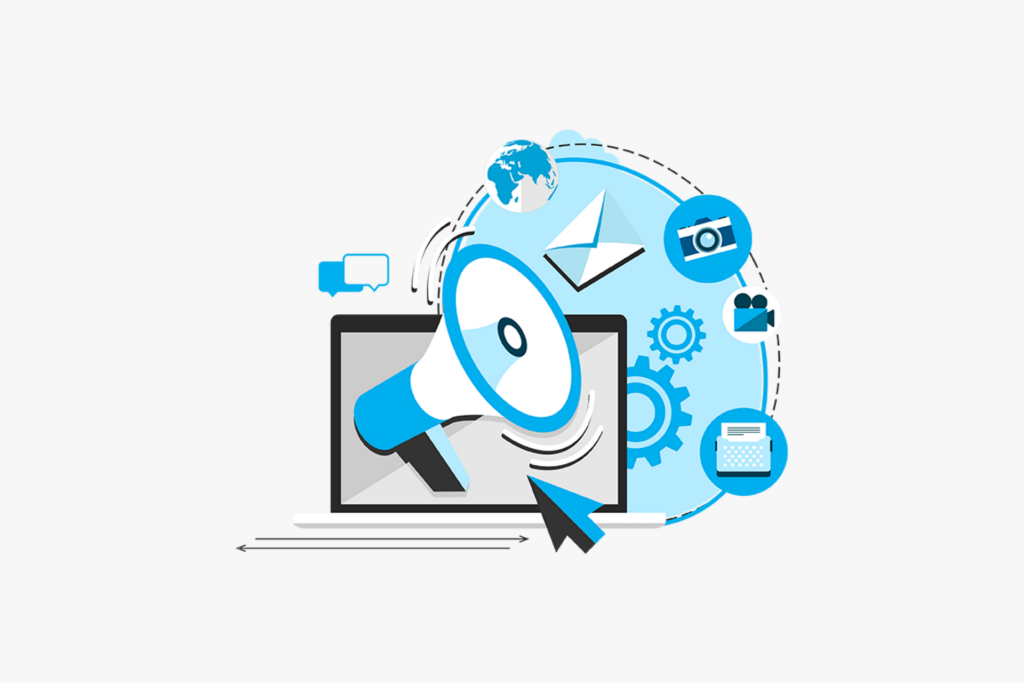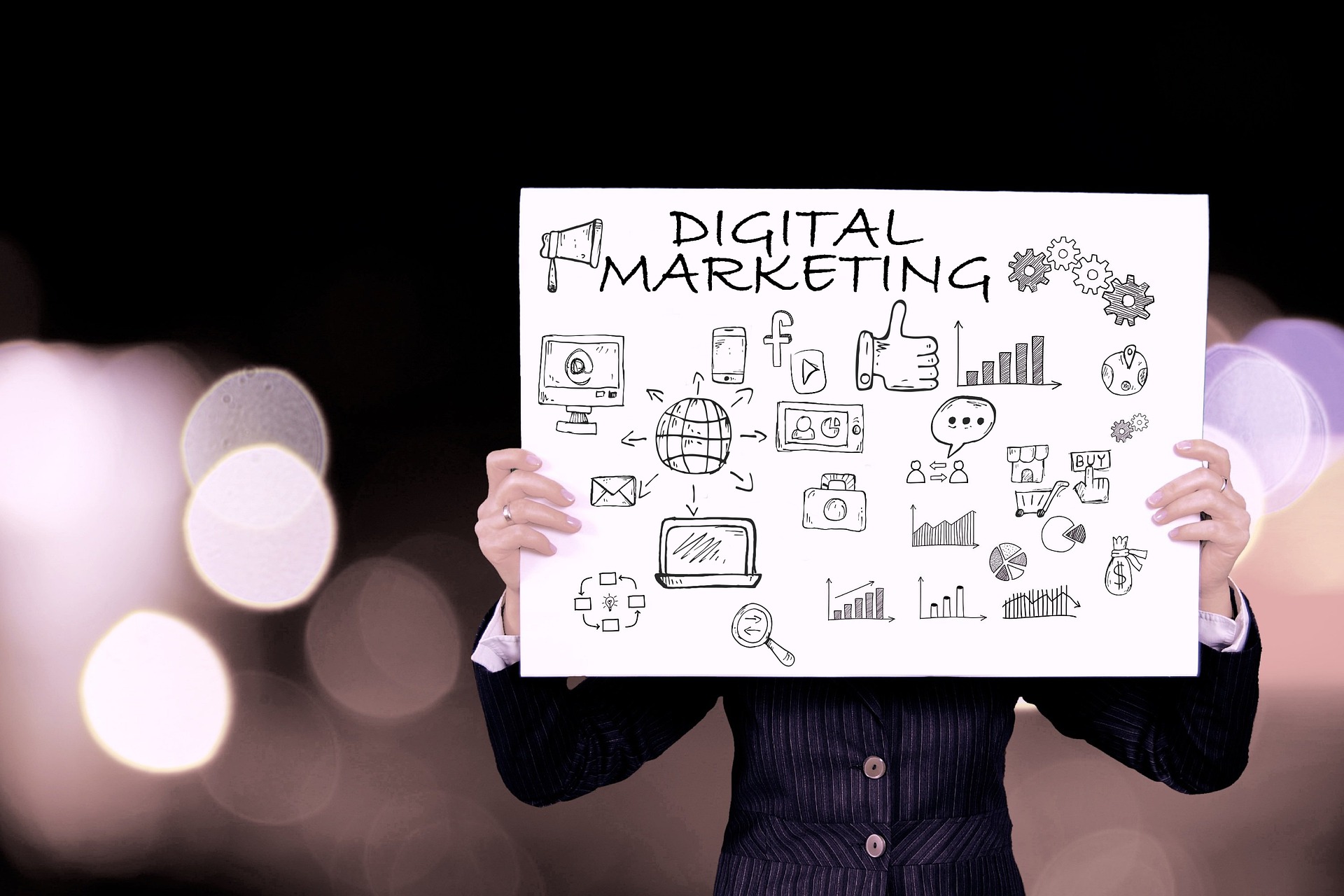The Components of Online Marketing
Online marketing is a multifaceted field that encompasses various strategies and technologies to effectively reach and engage your target audience. Here are the key components you should understand and utilize:
Search Engine Optimization (SEO)
SEO aims to position your website higher in search results, increasing organic traffic by integrating relevant keywords into your content and meta tags.
Content Marketing
This strategy involves creating and sharing valuable content to attract prospects and convert them into customers. Regularly publishing high-quality content is crucial in this regard.
Social Media Marketing
Utilize platforms like Facebook, Instagram, and LinkedIn to promote products or services. Creating engaging content and interacting with followers is essential in this context.
E-Mail Marketing
A direct marketing form that uses electronic mail to transmit commercial messages. Personalizing emails and segmenting email lists increase the relevance and effectiveness of the sent messages.
Pay-Per-Click-Werbung (PPC)
PPC is an advertising strategy where ads are placed in search engine results, and you only pay when your ad is clicked. Optimize your ads to target the right audience.
Mobile Optimization
Given the increasing use of mobile devices, it is essential that your online marketing strategies are mobile-friendly to ensure an optimal user experience.
Use of Cookies and Tracking Technologies
Cookies help understand user behavior and optimize the website experience. It is important to distinguish between necessary cookies and those for preferences, statistics, and marketing.
Each of these components plays a crucial role in a comprehensive online marketing strategy aimed at increasing your visibility and communicating effectively with your target audience.

The Goals of Online Marketing
Online marketing is not only cost-efficient but also allows for precise budget control and provides immediate, measurable user feedback. The goals in online marketing can be divided into five main areas: sales, brand building, interaction, service, and cost efficiency. Specific measurable goals include the comparison of sales and profits monthly, online sales, customer acquisition, downloads, and the acquisition of new employees.
Defining Strategic Goals
Setting clear goals is the first step towards aligning your online marketing strategies. These goals should be SMART (specific, measurable, achievable, relevant, time-bound) and may include reach, engagement, conversion rates, revenue growth, brand awareness, and customer satisfaction.
Measurable Goals in Online Marketing
Measurable goals include transactions such as sales, customer registrations, revenue, conversion rate, average order value, number of conversions, ROI, and ROAS. Additional measurable aspects are interactions such as time spent on the website, bounce rate, click-through rate, social media interactions and mentions, and reach, which encompasses unique page views, impressions, brand traffic, repeat visits, and keyword rankings.
Customer Needs and Market Segmentation
When defining marketing goals, customer needs should be considered, taking into account factors such as age, gender, and location. Effective market segmentation can be achieved by creating marketing personas based on different customer types.
Branding and advertising
Measurement and Optimization in Online Marketing
The effectiveness of your online marketing campaigns can be measured and optimized through various key performance indicators (KPIs). These indicators include reach, engagement, conversion rates, return on investment (ROI), and are crucial for data-driven decisions and continuous improvement.
Important Performance Indicators (KPIs)
- Traffic: Number of visitors to your website.
- Click-through rate (CTR): Ratio of clicks to impressions of an ad or a link.
- Conversion rate (CVR): Percentage of visitors who complete a desired action.
- Return on Investment (ROI): Profit from marketing campaigns relative to campaign costs.
- Lifetime Value (LTV): Average revenue a customer generates during their relationship with a company.
- Engagement: User interactions with a website or social media platform, such as comments or shares.
- Search engine ranking: Position of a website in search results for specific keywords.
Tools for Data Analysis
- Google Analytics: Use this tool to track performance and identify areas for improvement.
- Facebook Insights und Twitter Analytics: These tools help you monitor and analyze performance on social media.
- Email campaign analysis tools: Monitor email campaign performance to identify areas for improvement.
By continuously monitoring and analyzing these KPIs, you can ensure that your marketing budget is being used effectively and delivering the desired results.
Conclusion
By comprehensively examining online marketing, its key components, and strategic goals, businesses of all sizes can unlock unprecedented opportunities to increase their visibility and communicate effectively with their target audience. The importance of a well-considered online marketing strategy, tailored to the individual needs and goals of each business, cannot be overstated. Such an approach not only allows for precise targeting but also fosters long-term customer loyalty and brand loyalty.
In conclusion, the ongoing measurement and optimization of online marketing campaigns are crucial for the success and sustainability of digital marketing efforts. The use of data analysis tools and Key Performance Indicators (KPIs) enables marketers to make informed decisions and continuously improve the effectiveness of their strategies. In an increasingly digital world, it is of essential importance that businesses recognize the potential of online marketing and know how to use it for their success.
FAQs
What should one know about online marketing in general? Online marketing encompasses the use of various strategies to improve a company’s online presence, reach new customers, and increase sales. Core strategies include search engine optimization (SEO), content marketing, social media usage, email campaigns, and pay-per-click advertising.
Which activities are attributed to online marketing? Online marketing includes all marketing measures that are realized via the internet. This includes, among other things, brand building, search engine marketing, email marketing, affiliate marketing, social media marketing, video marketing, content marketing, lead management, automation, and the digitalization of marketing processes.
What are the four main areas of online marketing? The central pillars of online marketing include search engine marketing, which encompasses SEO and SEA (Search Engine Advertising), display and banner advertising, email marketing, and social media marketing. A significant advantage of online marketing compared to traditional marketing lies in the precise measurability of the implemented activities.
What are the different types of online marketing? The various forms of online marketing include content marketing, social media marketing, influencer marketing, affiliate marketing, search engine optimization (SEO), web design, email marketing, and paid advertising formats.








